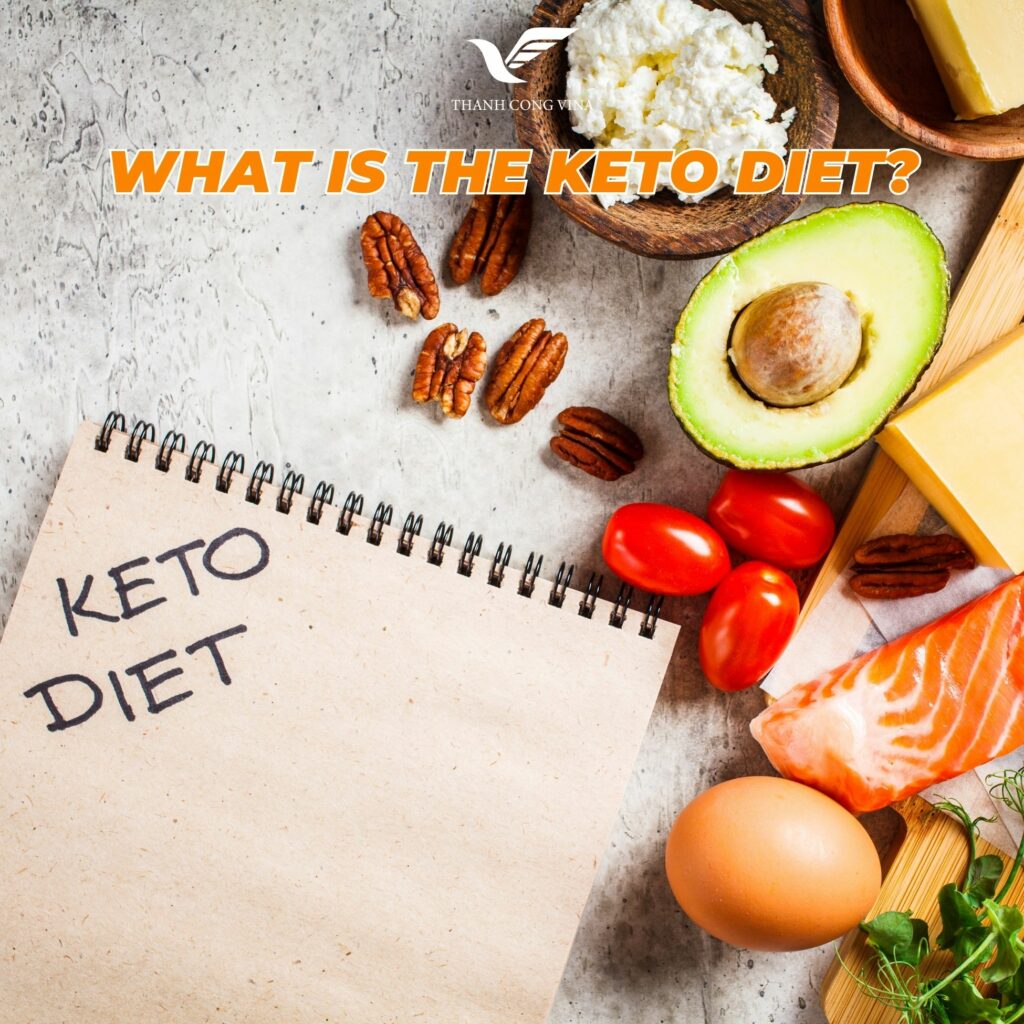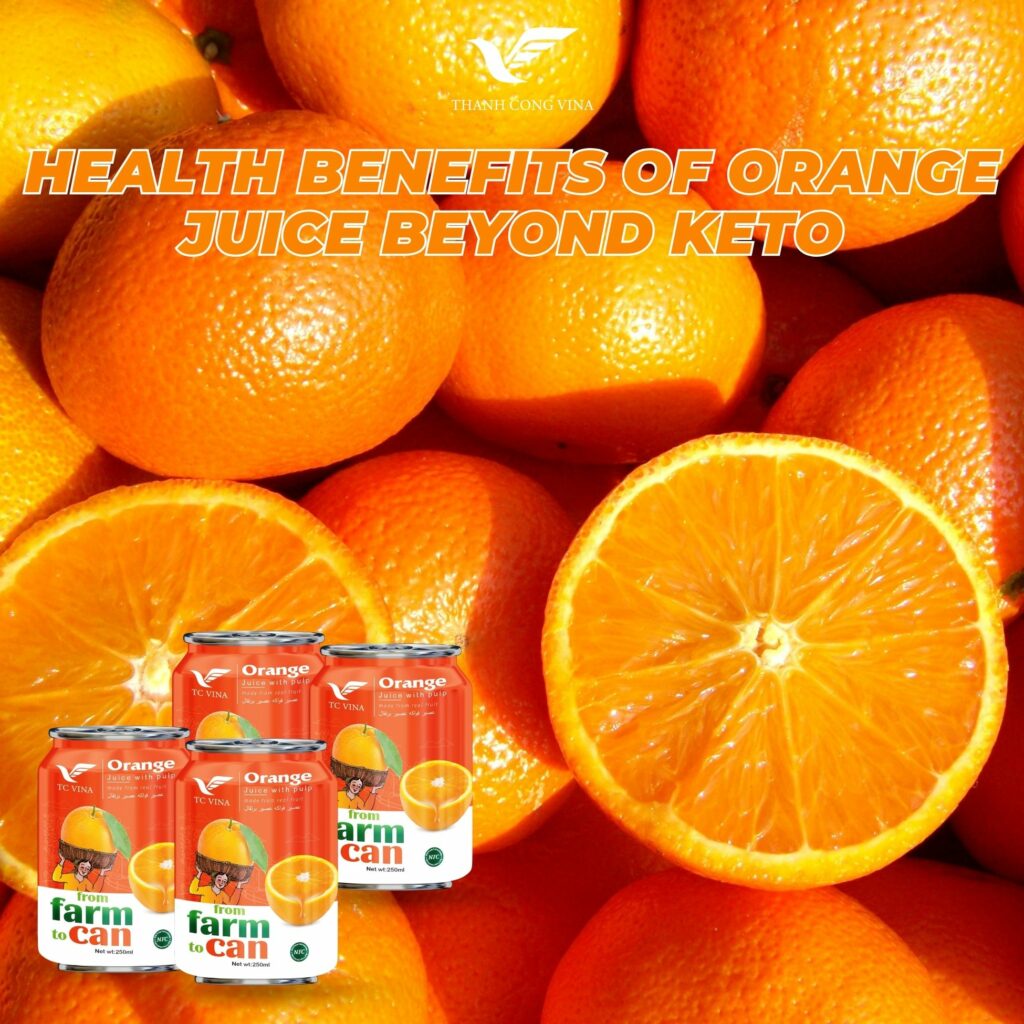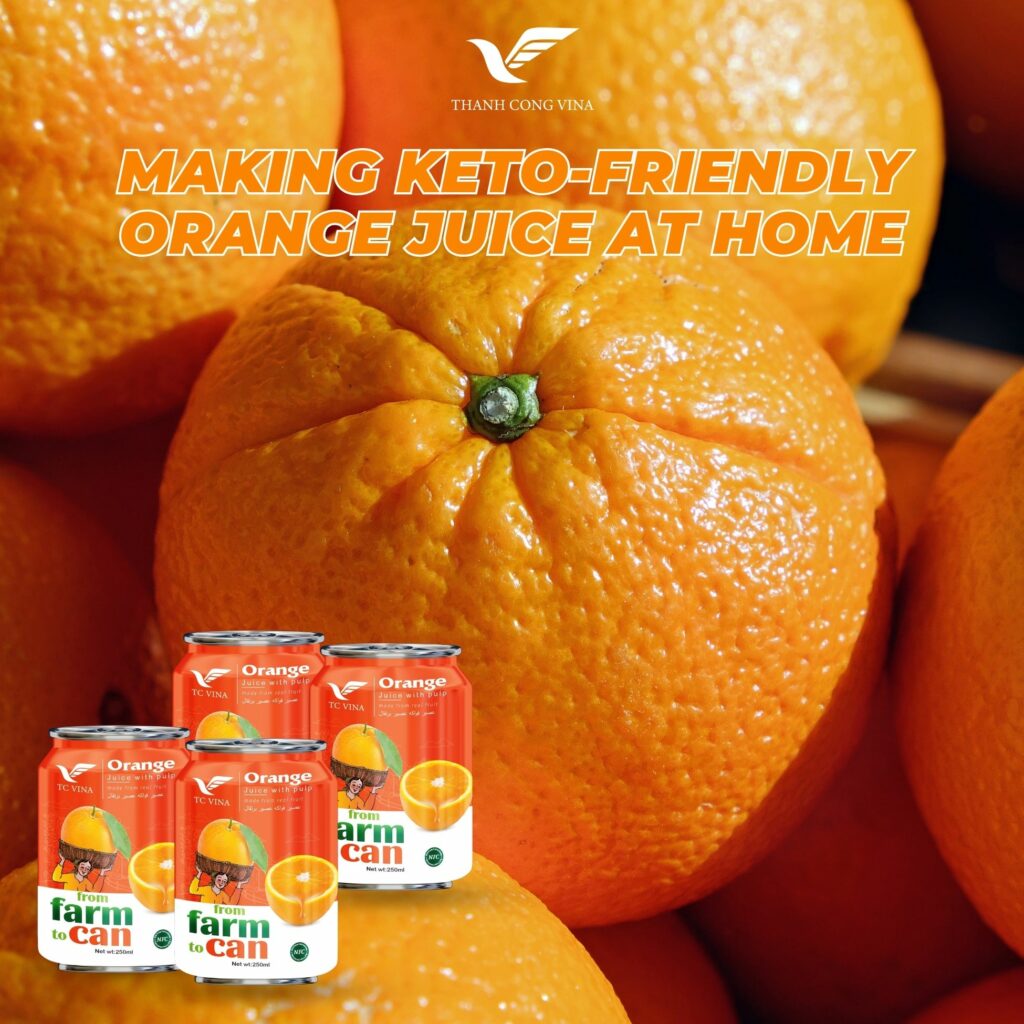Products Knowledge
Is Orange Juice Keto-Friendly or Too Sugary?
Orange juice is one of the most popular beverages worldwide, known for its refreshing taste and impressive nutrient content, especially vitamin C. For decades, people have associated orange juice with a healthy start to the day. But in recent years, as low-carb and ketogenic (keto) diets have gained popularity, a new question has emerged: does orange juice fit into a keto lifestyle, or is it simply too sugary to be considered keto-friendly?
This article takes a deep dive into the nutritional profile of orange juice, its relationship with the keto diet, and whether there is room for it in a low-carb lifestyle.
What Is the Keto Diet?

The ketogenic diet is designed to transform the way your body processes energy. Instead of relying on carbohydrates for fuel, the keto diet shifts metabolism toward fat burning. This metabolic state, known as ketosis, occurs when carb intake is drastically reduced and fat becomes the primary energy source.
To achieve and maintain ketosis, most people need to consume no more than 20–50 grams of carbohydrates per day. This strict limit means that many high-carb foods and drinks—including bread, pasta, rice, sweets, and most fruit juices—are excluded or kept to very small amounts.
The main challenge for orange juice lies in its carbohydrate and sugar content, which can easily exceed daily keto limits.
Why Orange Juice Is Too Sugary for Keto
1. Carbohydrate Density
The keto diet thrives on keeping carbs low, yet orange juice is extremely carb-dense. Just one glass contains more carbs than an entire day’s keto allowance.
2. Lack of Fiber
Unlike whole oranges, which contain fiber that slows sugar absorption, orange juice has almost no fiber. This leads to a rapid spike in blood sugar and insulin levels—precisely what keto aims to avoid.
3. Natural Sugars Still Affect Ketosis
Some argue that the sugars in orange juice are “natural,” and therefore healthier than refined sugar. While this is true from a nutrient perspective, the body doesn’t distinguish between natural and added sugars in terms of carb metabolism. Both count toward your daily carb intake, and both can disrupt ketosis.
4. Liquid Calories
Liquid calories tend to be less filling than calories from solid foods. Drinking juice provides a quick sugar rush without the satiety that comes from eating whole fruits, which can make it harder to stick to keto and weight loss goals.
How Orange Juice Fits Into a Low-Carb Lifestyle

While orange juice is not keto-friendly in the traditional sense, it may still have a small role if consumed creatively and sparingly. For example:
-
Dilution: Mixing one to two tablespoons of orange juice into water or sparkling water can give a refreshing citrus flavor with minimal carbs.
-
Flavor Enhancer: A splash of orange juice in marinades, salad dressings, or sauces provides flavor without overwhelming your carb intake.
-
Special Occasions: If you are following a “lazy keto” or more flexible low-carb diet, an occasional small serving may be acceptable.
However, for strict keto dieters, a full serving of orange juice is almost always too high in carbs.
Keto-Friendly Alternatives to Orange Juice
For those who crave the taste of oranges but need to avoid the sugar overload, there are several alternatives:
-
Citrus-Infused Water
Add slices of orange peel or zest to water for a subtle flavor without the carbs. -
Orange-Flavored Electrolyte Drinks
Many keto dieters rely on electrolyte powders that come in citrus flavors, offering hydration and a taste of orange without sugar. -
Sugar-Free Orange-Flavored Beverages
Drinks flavored with natural orange extract and sweetened with stevia or monk fruit can provide the familiar taste without the carbs. -
Orange Extract in Recipes
Using orange extract in baking, sauces, or even coffee can mimic the flavor of orange juice without affecting ketosis.
Comparing Orange Juice with Other Juices
To better understand where orange juice stands in the keto debate, let’s compare it to other common juices:
-
Apple Juice: ~28 grams of carbs per cup, higher than orange juice.
-
Grape Juice: ~36 grams of carbs per cup, one of the highest.
-
Cranberry Juice (unsweetened): ~12 grams per cup, still significant but lower.
-
Lemon or Lime Juice: ~4 grams per ounce, often used in keto recipes due to lower carb density.
In comparison, orange juice is not the highest in carbs, but it is still far too sugary to be compatible with keto.
Health Benefits of Orange Juice Beyond Keto

Although orange juice doesn’t fit well into a ketogenic diet, it remains a healthy beverage for many other dietary approaches. Its benefits include:
-
High Vitamin C Content
Orange juice is one of the best sources of vitamin C, which supports the immune system, aids in collagen production, and acts as a powerful antioxidant. -
Rich in Potassium
Potassium is essential for heart health, blood pressure regulation, and proper muscle function. -
Antioxidant Power
Orange juice contains compounds like flavonoids and carotenoids, which help fight inflammation and oxidative stress. -
Convenient Source of Hydration
While water is the best choice for hydration, orange juice provides both fluids and electrolytes.
These benefits show why orange juice remains a staple in many households, even if it doesn’t fit into keto.
Making Keto-Friendly Orange Juice at Home

For people who want to enjoy the flavor of orange juice while staying in ketosis, a few creative hacks can help:
-
Diluted Citrus Water: Mix a splash of fresh orange juice with a tall glass of water and a keto-friendly sweetener like stevia.
-
Orange Peel Tea: Boil dried or fresh orange peels to create a citrus-infused herbal tea with almost no carbs.
-
Orange-Flavored Sparkling Water: Combine carbonated water with a drop of orange extract and monk fruit sweetener for a soda-like experience.
These methods allow you to enjoy the taste of orange juice without breaking your keto goals.
The Verdict: Too Sugary for Keto
When it comes to keto, orange juice is simply too high in sugar and carbohydrates to be considered keto-friendly in standard serving sizes. One cup can contain more carbs than an entire day’s allowance on a strict keto plan.
That said, orange juice still offers many health benefits outside of the ketogenic context. If you are committed to keto, your best bet is to opt for low-carb alternatives that deliver the flavor of orange without the carb load.
For those not strictly following keto, enjoying orange juice in moderation can still be part of a balanced, nutrient-rich diet.
Final Thoughts
At Thanh Cong Vina IEP CO., LTD, Orange juice is packed with vitamins, minerals, and antioxidants, making it a valuable addition to many diets. However, for individuals following a ketogenic lifestyle, its high sugar and carb content make it incompatible with strict keto guidelines.
The good news is that with a little creativity—using diluted juice, citrus-infused water, or orange-flavored keto drinks—you can still enjoy the essence of oranges without the sugar spike.
Ultimately, whether orange juice is suitable for you depends on your dietary goals. If ketosis is your aim, it is best to avoid it. But if overall health and balanced nutrition are your priority, orange juice can still hold a well-deserved place in your daily routine.

